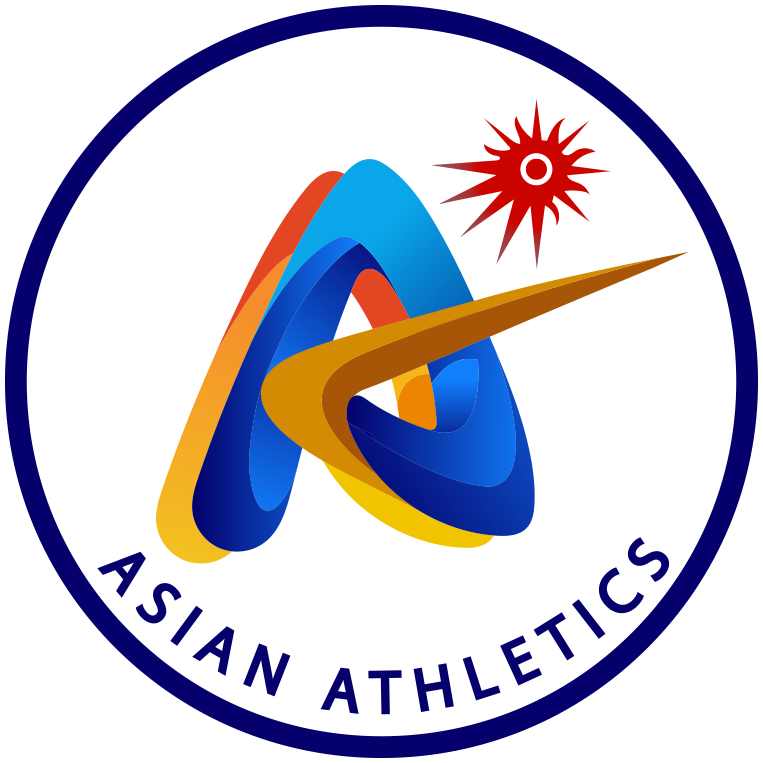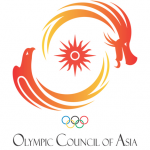Four years after successfully organizing the Asian Junior championships in the Indian capital, the Amateur Athletics Federation of India once again invited the continent’s young athletes to the same venue in 1996 for yet another memorable edition.
As many as five new Asian Junior meet records have been established in the junior men’s section. Notable among them was 8:53.47 by the Chinese distance runner Sun Wenyong, who won the gold in a hotly contested 3000m steeplechase from Japan’s Harada Mithunori.
The Chinese once again topped the medal tally with 15 gold, 12 silver, and 5 bronze medals. Hosts India once again finished second with 10-13-11. Indian boys (178) and Chinese girls (215) garnered top places in their respective sections. However, India, with 354 points, led the overall standings ahead of China (329).
Interestingly, Qatar finished ahead of Japan in the medals table with 5 gold, 3 silver, and 1 bronze medal, as opposed to Japan’s 4-8-6. Korea and Iran won two gold medals each.
Two intermediate hurdlers caught the spectators’ eyes with outstanding performances. Qatar’s Faraj Sultan Mubarak Al-Nubi won the boys’ 400m hurdles in 50.76 secs, a new meet mark, while China’s Lui Rui took the crown for girls in 58.19 secs. Both were adjudged the “Best Athletes” in their respective divisions.
Japan’s Tamura Kazuhiro (10.64 secs) and Chinese Yang Xiaoyu (11.92 secs) snatched the sprint crown among boys and girls, respectively. Incidentally, Tamura made it a ‘sprint double’ by taking the 200m gold in a new championship record of 21.00 secs.
Qatar’s Khassif Mubarak stopped the clock at 14.11 secs in 110m hurdles while host nation’s Anoop Singh Punia hammer threw 64.60m – both new meet marks.
Chinese distance runner Wang Zhongfen was another athlete to make a “double” by winning both 3000 and 5000m races. Indian relay teams won three out of four titles in the offing, while Thailand cliches the boys’ sprint relay gold.
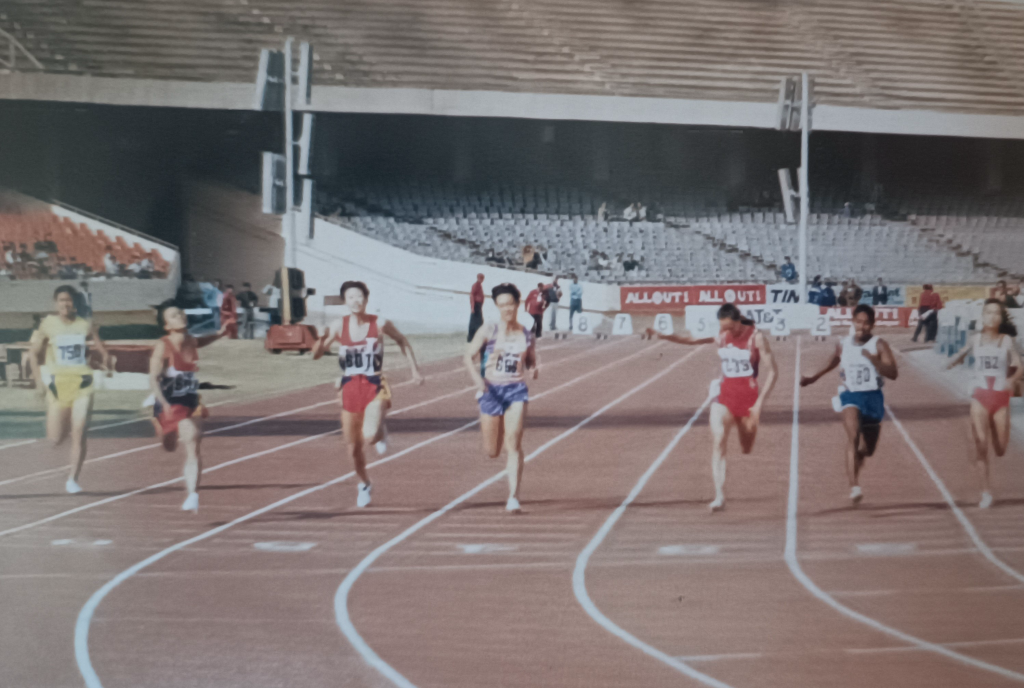
1997 Bangkok: Chinese garnered an unassailable 25 gold medals
The ‘Young Army’ of Ma Junren virtually dominated the proceedings with a record 25 gold medals haul in the Thai Capital.
Ma was the coach of several Champion athletes, some set world records in the Chinese National Games held in Shanghai the previous month. Most of his junior athletes entered the fray in the Asian junior championships in Bangkok, except Dong Yanmei, who won the 10,000m in Shanghai and finished second in 5000m in 14:29.82 with a new junior world record! Yanmei went to take part in the annual marathon in Dalien, which Ma Junren used to organize for several years and eventually won it with a noteworthy 2:28:09.
The rest of his team easily swallowed the other medals at Bangkok. Lang Yinlai had a double in 800 (2:02:66 NCR) and 1500m (4:18.31), Ylan Lixin (9:10.17 NCR in 3000m) and Yin Lili (16:34.67) won the 3000 and 5000m titles.
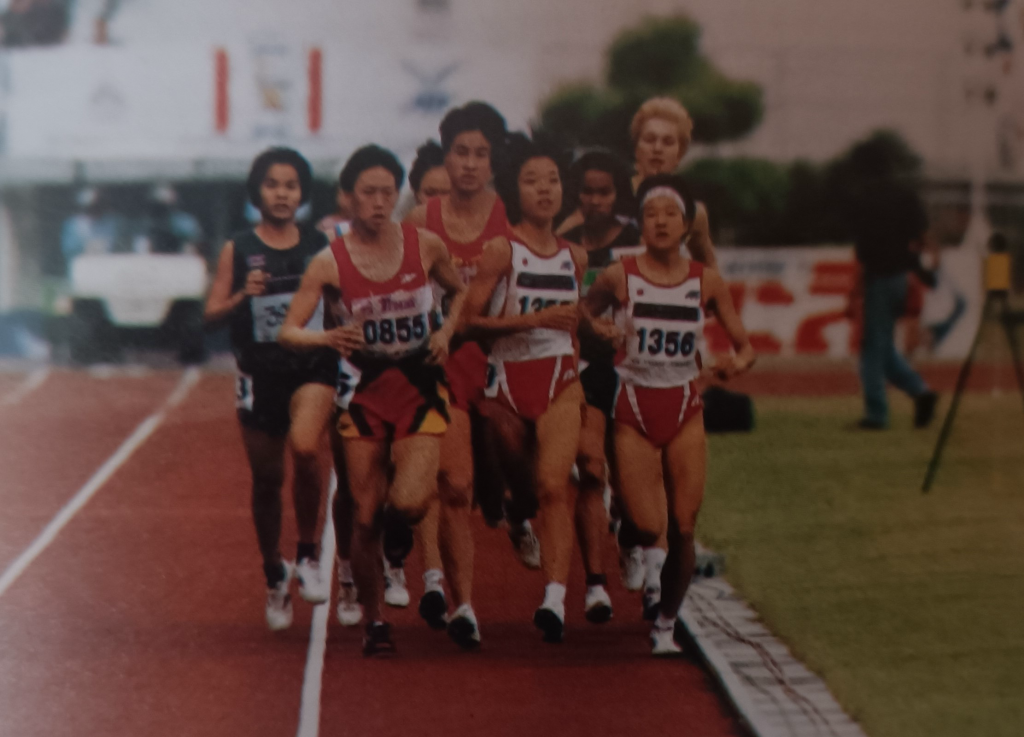
Impressive performances came from other athletes as well. The Japanese got five gold medals. High jumper Koji Ishii sailed over 2.22m for a new record in the high jump. Hirofumi Nakagawa clocked 20.88 secs to erase the 200m mark for the gold. Chinese Guo Wei took the coveted 100m title in 10.36 secs. The 400m timings of Korean Kim Jae-Da (46.45 secs) and Saudi Arabia’s Hamdan Al-Bishi (46.53s) were impressive and bettered the previous meet marks in that event.
Chinese Taipeh’s Chen Shu-Chuan surprised everyone with a triple gold in the junior women’s category. She won 100m (11.70s) and 200m (23.47) and led her national team to victory in the 4 x 100m relay (45.47 secs).
Chinese pole vaulter Xu Gang (18), who won the National Games last month with a height of 5.50m and finished fourth in last year’s World Junior championships in Sydney, posted a new championship record of 5.20m in Bangkok. Qatar’s Abdul Rahman Al-Nobi pushed the Chinese Cao Zhaoting for the long jump gold by 3 cm (7.68 to 7.65m).
Impressive long jump marks also in the junior women’s side through Taiwan’s Wang Kuo Hui (6.56m) and China’s Guo Chunfang (6.41m).
In the triple jump, Li Jiahui added 10 cm to her bronze medal-winning performance in the Chinese National Games in Shanghai to leap 14.23m for the gold in Bangkok.
Korea’s Yu Nam-Sung won the boys’ javelin throw by sending the implement to a distance of 72.66m while Irina Naumenko from Kyrgyzstan took the heptathlon gold with 5,099 points. In this competition, the world’s best junior Shen Shengfei from China (PB: 6185 pts), aged 16 years, who was leading the competition with 500 points was eliminated early due to three invalid attempts in the long jump.
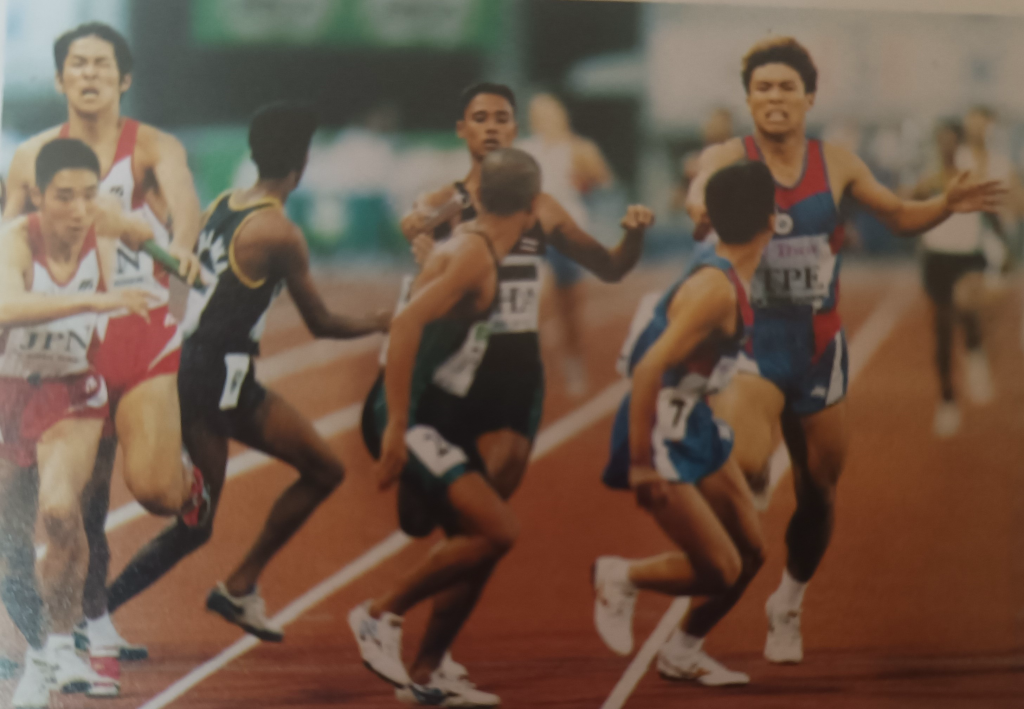
1999 Singapore: More nations joined the medal sharing
The Asian Amateur Athletics Association in 1997 made it a rule that the organizers of the continental junior championships provide free boarding and lodging for a maximum of 30 athletes per participant country. Thailand was the first host country to fulfill this norm. Many member federations hesitate to organize future editions to obtain sufficient funds to follow the above rule. However, Singapore Athletics came to the rescue with their nation’s healthy economic background and sponsorship support.
There was a slight decline in Chinese performances in this edition, which paved the way for other nations to jump into the medal standings. China won only 17 golds compared to the stupendous 25 in the previous edition in Bangkok. As many as 13 member federations won gold medals, and another six won at least a medal. One of the main beneficiaries was the Arab nations, where athletes from Qatar returned impressive results, as in the past.
Qatari athletes accounted for four new meet records out of six in the boys’ section. Salah-el-Din Bakar in 400m (45.85 secs), Abubaker Ali Kamal in the metric mile (3:42.46), Rashid Shafi Al-Dosari in the discus throw (55.28m), and Ahmad Hassan Moussa in the decathlon (7,387 points) returned home with an impressive show. The Japanese quartet won the mile relay at 3:07.38, and their countryman, Tatsuhiko Yasukawa, equaled the meet mark in the pole vault (5.20m). The Qataris won two other titles through Said Al-Harasi in the steeplechase and Mohd Abdulaziz in the triple jump.
Saudi Arabians Salah Fadlalah and Moukhled Al-Otaibi won the 800m (1:49.17) and 10,000m (30:11.05). As usual, the Chinese women dominated the show with 14 wins, which roughly accounted for one-third of the 43 events card in total. Unlike in the previous edition, the Chinese did not field their best in Singapore. Taking advantage of the situation, athletes from Chinese Taipei, Kazakhstan, and North Korea won the other events.
Irina Naumenko retained her title in the heptathlon with an improvised 5,557 points. In this edition, the 10,000m race walk replaced the 5,000m RW contested earlier. China’s Yu Rui Li was the inaugural winner in 51:20.39.
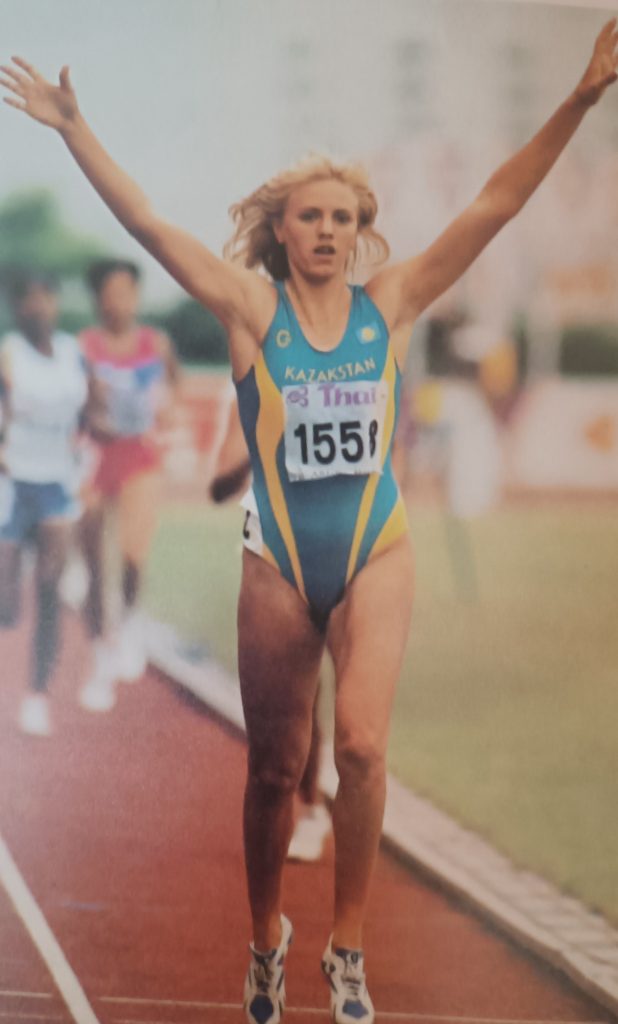
2001 Bandar Seri Begawan: Impressive double victories
Eight new records were created during the four-day meet held for the first time in Brunei Darussalam. China was again the medal-topper (19-10-3), with 20 countries entering the medals table.
Impressive performances came from Shi Dongpeng in 100m hurdles (14.05 secs) and Tajikistan hammer thrower Dilshod Nazarov (68.08m), both new records. Chinses athletes also accounted for five more new meet marks, notable among them were Wu Tao in discus throw (60.14m) and Zhu Hongjun in 10,000m race walk (43:16.67). Qatar’s Abdulaziz Al-Amri clocked 14:20.72 in 5,000m.
Steeplechaser Bahrin Arifin Jumat won a bronze, the only medal for the hosts, in the championships. Saudi sprinter Salem Al-Yami made it a double by taking 100-200m golds. His countrymate Hamdan Al-Bishi finally won the gold in 400m in 46.16 secs. In a similar act, Chinese girl Ni Xiaoli won the sprint double in her division. Two other Chinese athletes, Yang Wei (400/800m) and Zhang Yuhong (5000/10000m), also doubled in their favourite events.
2002 Bangkok: Splendid show in throwing arena
The championship returned to the Thai capital again, and a robust Chinese presence was also present. The athletes from China displayed their excellent skills to capture a record 39 medals, 22 of which were gold.
However, the above championships also once again ascertained the growing supremacy of Arab nations’ athletes, especially in technical events.
Qatar’s Khaled Habash Al-Suwaidi registered two new records: 20.29m in the shot put and 63.17m in the discus throw. Ali Al-Zinkawi from Kuwait did the same in the hammer throw, sending the ball and chain to a new distance of 74.93m.
The sprint relay quartet from Japan posted 39.30 secs for the 4x100m relay gold, while their race walker covered the 10k distance in a remarkable 42:00.53. Uzbek pole vaulter Leonid Andreyev equaled the meet mark by scaling to 5.20m.
Chinese women registered two throwing records in the women’s section. Discus throwers Xu Shaoyang (62.54m) and hammer thrower Zhang Wenxiu (66.10m) became the new owners of such records. Race walker Natsuki Kimura rewrote the previous mark with 49:03.38.
Youssef Abu Qweik won Palestine’s lone medal, bronze, in the junior men’s 5000m, while Mohamed Hazouri won a similar one for Syria in the triple jump.
(To be continued)
Ram. Murali Krishnan for Asian Athletics
Photo credits: Asian Track & Field News, AAA/LOC Archives
